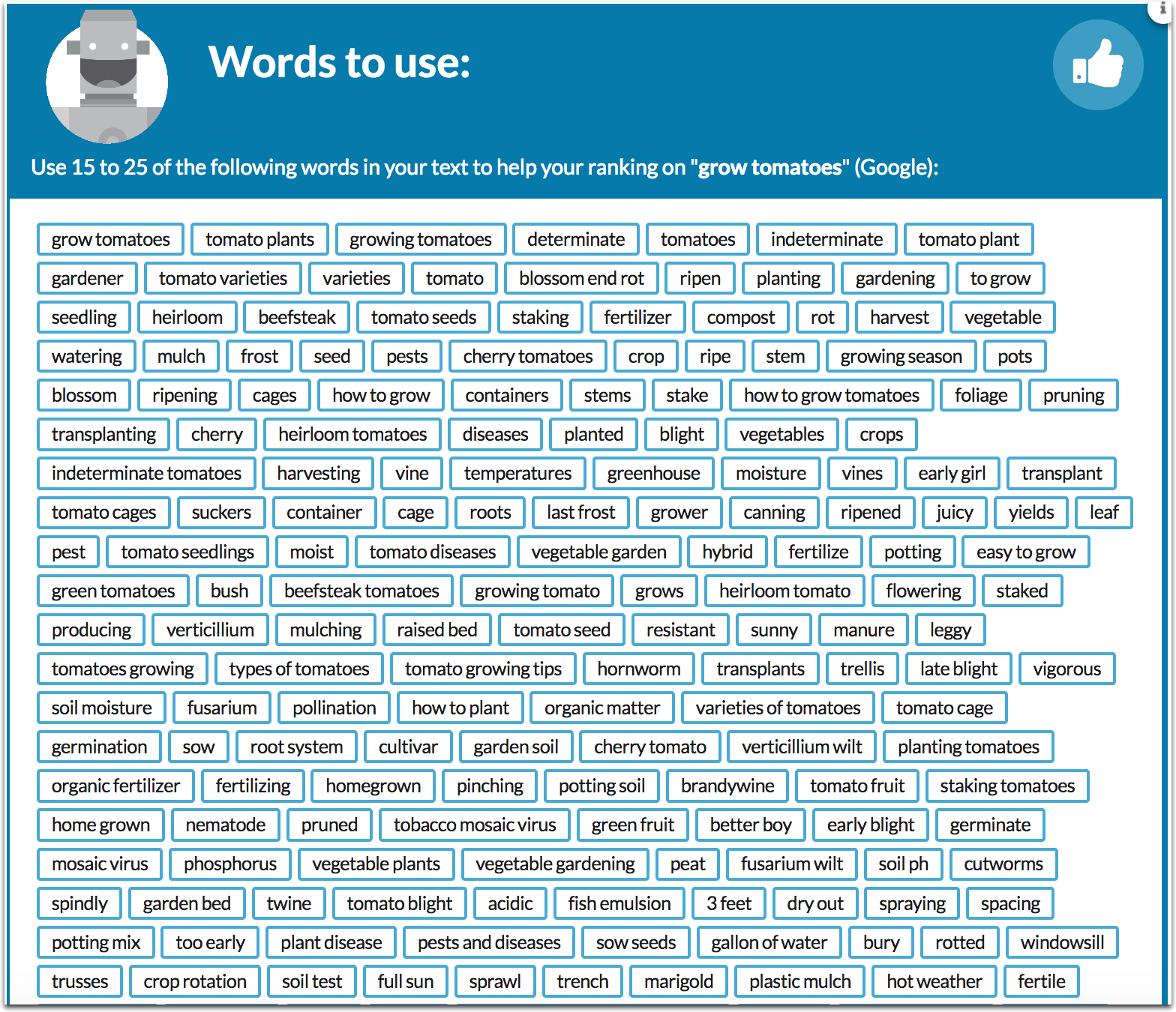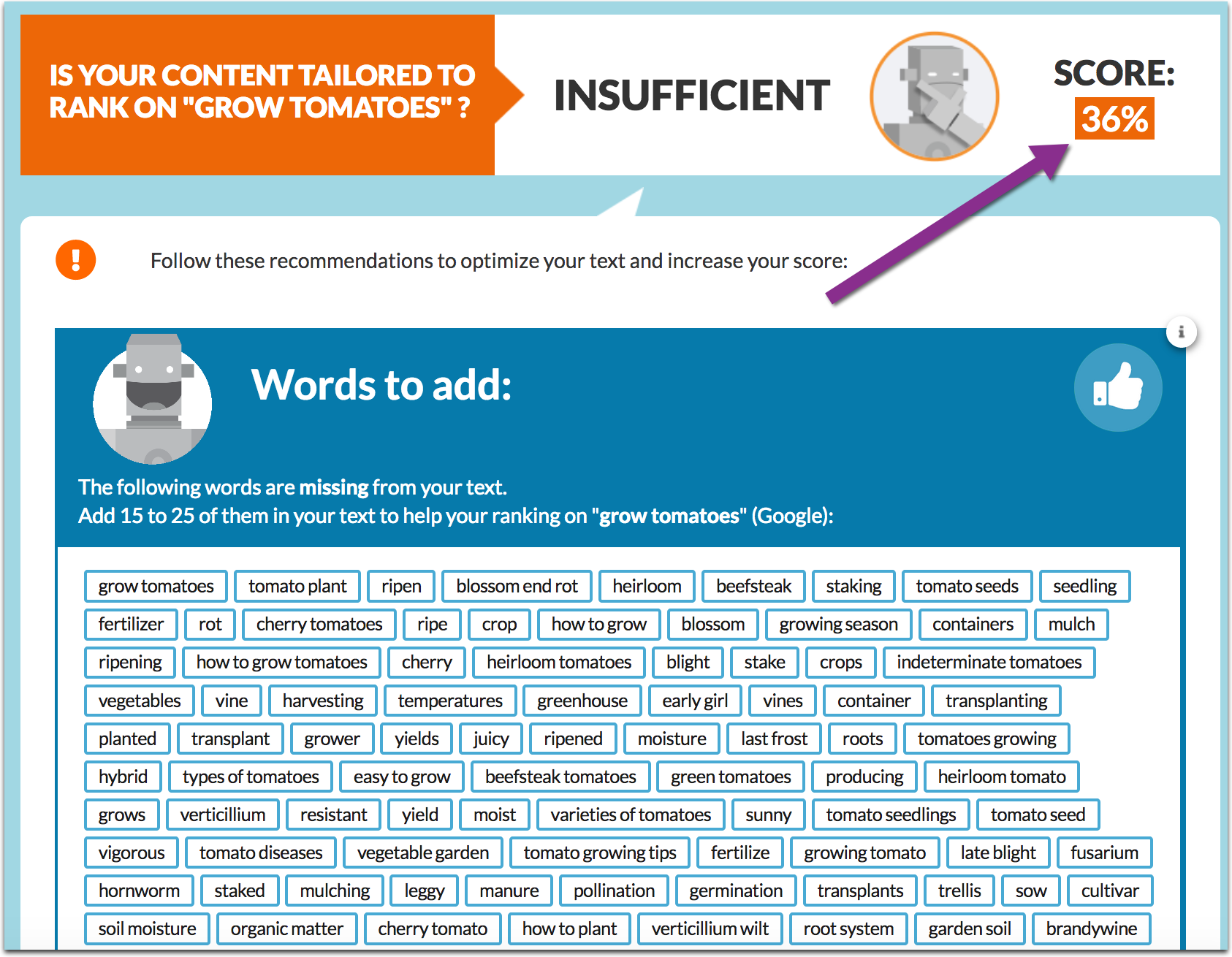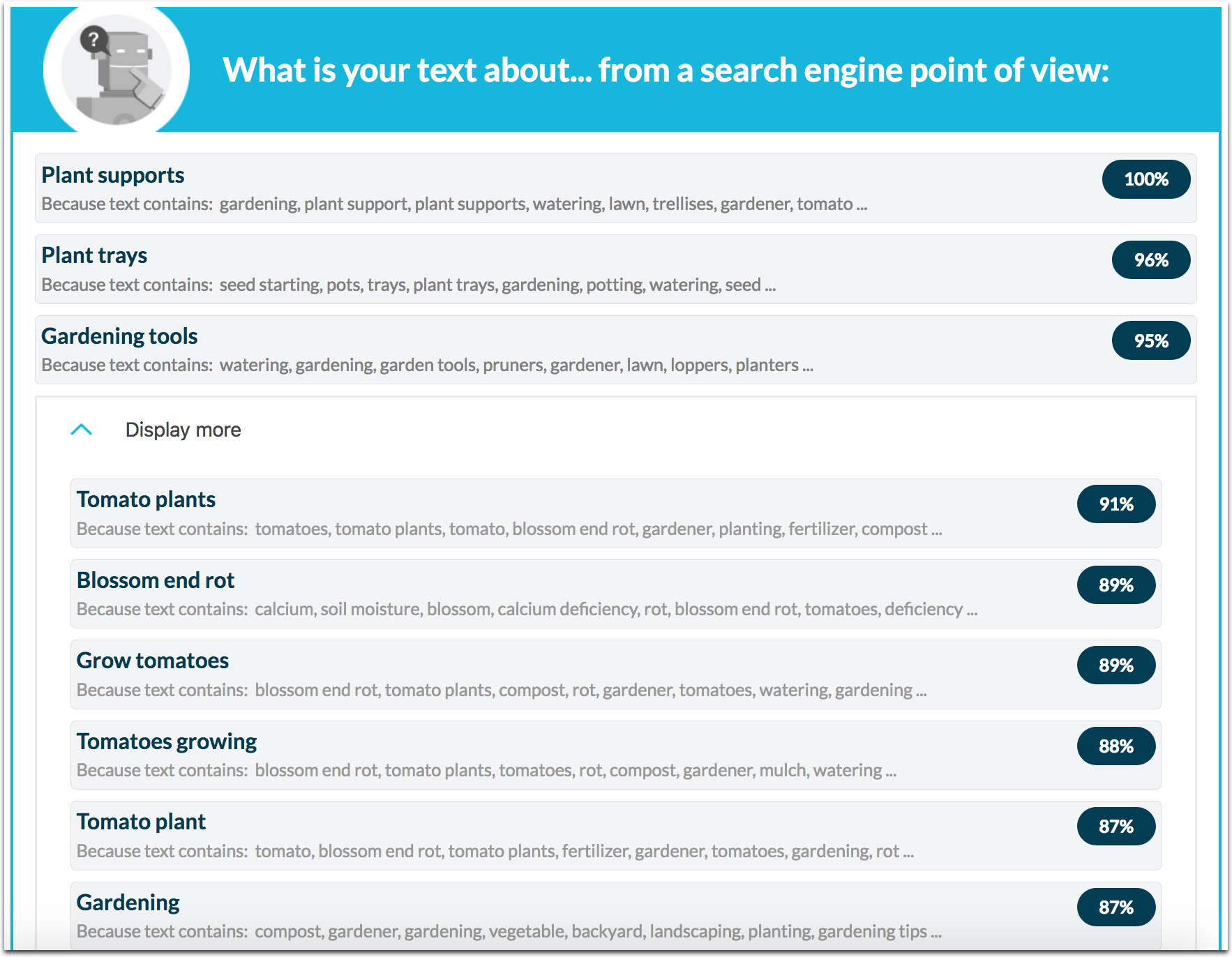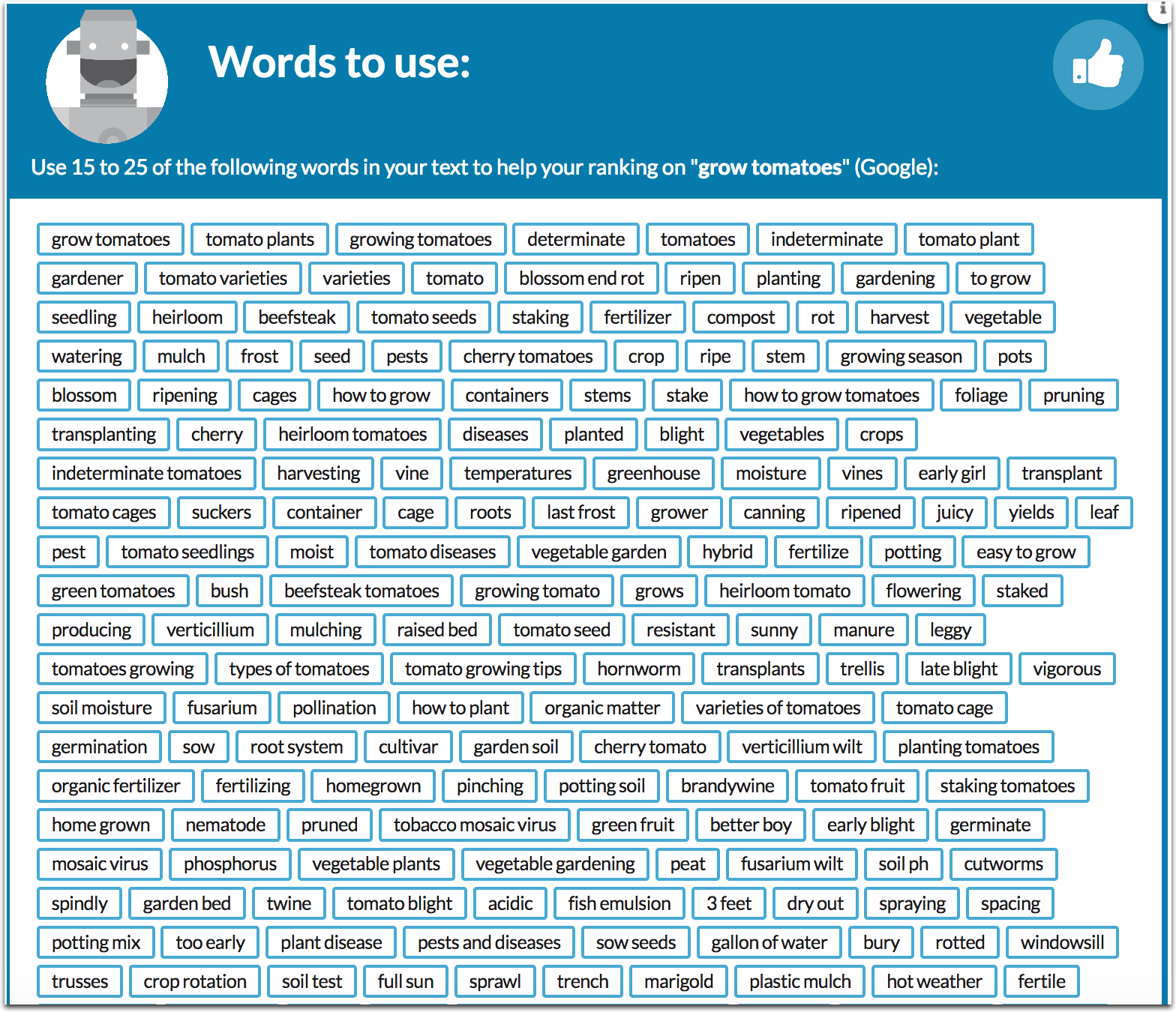Every keyword tool below has something new to bring to the table when it comes to helping you understand the topic better, expand your keyword list and diversify your organic rankings: 1. For any term you put it, it will look at Google search result page, extract search snippets and apply semantic analysis to generate the list of all related topics, terms and concepts that form your topic cluster. It will then score your text and recommend expanding your content to include some of those suggested terms: Google search snippets represent the best (in Google’s opinion) summary of the query topic. By semantically analyzing those snippets and extracting related terms and topics from them, you will get a better understanding of what you need to include in your content. Here are three Google tools that are useful for discovering related terms: Google Correlate According to Google in the tool’s documentation, Google Correlate is like Google Trends in reverse. In our case, we don’t have the data series, but the tool can also work with keywords: Simply put in your search term, and Google will calculate the trending pattern and show matching patterns. Keep running the tool and put together a list of related terms that do match your topic. My favorite thing about the tool (and why I do use it) is that you can exclude your initial search term from the returned list which means you can prevent the tool from phrase-matching (which you already did when doing your traditional keyword research) and force it to come up with related phrases instead: Google Trends is a more straightforward tool: Simply type in your core term and scroll down to “Related queries”, i.e. “Users searching for your term also searched for these queries”. Notice how Google is helpfully showing new terms it’s suggesting in bold: IMN Featured Snippet Tool collects those results and organizes them by (1) query they are triggered by and (2) popularity (i.e. based on how many queries trigger them): Expand your keyword lists! This will help you create more indepth content, diversify your rankings and generate expsoure from other Google search result sections, like featured snippets and “People Also Ask.”

SEO moved beyond exact keyword matching long ago. These days, in order to rank, we need to create content that includes related concepts, satisfies intent and provides value.
With such an important and complicated task in front of us, there’s never such a thing as too many tools.
Every keyword tool below has something new to bring to the table when it comes to helping you understand the topic better, expand your keyword list and diversify your organic rankings:
1. TextOptimizer
TextOptimizer is probably the most interesting tool on the list. For any term you put it, it will look at Google search result page, extract search snippets and apply semantic analysis to generate the list of all related topics, terms and concepts that form your topic cluster.
For example, for [grow tomatoes] it will generate the list of the following terms:

If you already have a page that you want to rank for that query, the tool will compare your existing text to the snippets Google returns for that query. It will then score your text and recommend expanding your content to include some of those suggested terms:

Google search snippets represent the best (in Google’s opinion) summary of the query topic.
By semantically analyzing those snippets and extracting related terms and topics from them, you will get a better understanding of what you need to include in your content.

It also shows subtopics and related questions (i.e. niche questions for each query you run) which helps you structure and format your content better.
Overall I have found the tool extremely helpful for creating more indepth content as it does a good job urging the writer to include the variety of related and neighboring terms (in order to increase your score)
There’s a good guide on how the tool works here. There’s also a handy Google Chrome extension to help you easier access the tool.
2. Serpstat Clustering Tool
Serpstat Clustering Tool is another innovative tool that uses Google to better…

COMMENTS